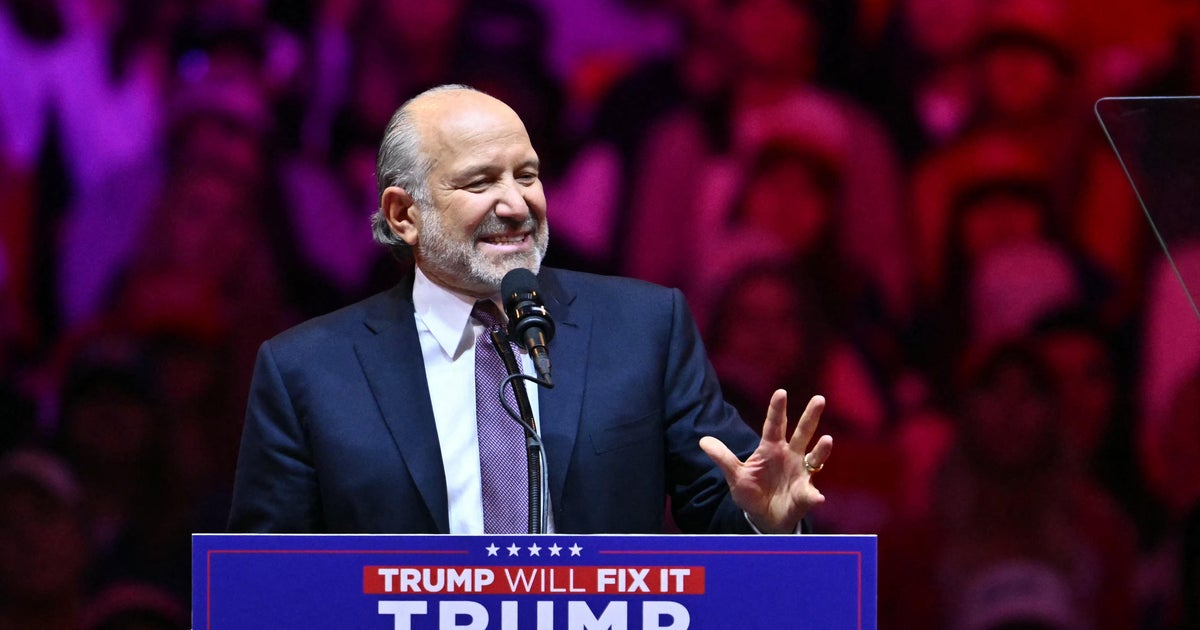Meet Vice President-elect Kamala Harris' "secret weapon": Her sorority sisters from Alpha Kappa Alpha
Vice President-elect Kamala Harris has never been shy about sharing her love for her alma mater, Howard University, and her sorority, Alpha Kappa Alpha, the country's first Black sorority, founded at Howard on January 15, 1908.
"CBS This Morning: Saturday" co-host Michelle Miller (also a Howard graduate) went back to talk to some of the women who joined the sorority with Harris, about how those early years shaped her.
"We're very tight," said Monique Poydras, who, with Dr. Elaine Witter and Carla Mannings, joined AKA. All were initiated with Harris back in 1986.
"There's something distinctive about a sorority at an HBCU [historically Black college and university]," Miller said.
"Well, it's a commitment for life – to strive for unity, friendship, high scholastics, and ethical standards that nurture college women," said Dr. Witter.
Alpha Kappa Alpha Sorority Inc., like most Black fraternities and sororities, has a mission to develop leaders and provide programs to uplift the community.
On January 15, 2021, Founders' Day (AKA's 113th anniversary), the vice president-elect reunited with her initiation class via Zoom. "I'm home when I see you guys," Harris said. "When people who are not us see us, they see the love and the sisterhood that is so enduring."
AKA members have been on the campaign trail all along. Miller asked, "When people started seeing on the trail online, '1908, 1908 pink and green this, pink and green that,' they were like, 'Where did all these women come from?'" (Pink and green are AKA's signature colors.)
"We were a secret weapon," Poydras replied. "We were a collective that nobody knew about, because our sorority, we have close to 300,000 members. We have a thousand chapters. It wasn't just us; it was also other Divine Nine [sororities and fraternities] organizations."
Miller asked, "Black sororities and fraternities have long held a role in ensuring social justice sees the light of day. What role do you see them having in the future?"
Mannings said, "The same: Social and economic justice. Because they're very much intertwined with each other. And so, it's about educating ourselves, educating others, and making sure that everyone has a chance to be a part of the economic mainstream of this country."
Harris graduated from the historically-Black university in 1986 with a degree in political science and economics.
Her sisters said they never heard Harris say "I want to be president of the United States one day." But, Poydras said, "She just had characteristics of a leader. Kamala tended to kind of stand out."
"She was the person who would come into the room and say, 'What needs to be done?' And they would get down to it," said Dr. Witter.
And how will they support their "line sister" as she becomes vice president?
"The same way we've supported her through this entire journey, as she has risen from San Francisco district attorney to attorney general of California to United States senator," Dr. Witter said. "She's an authentic person, and she works hard, and she's an inspiration."
"I think that young women today looking at Kamala Harris have to have an immense sense of overwhelming pride," Poydras said. "I think it gives them a sense that there's nothing that they can't do."




